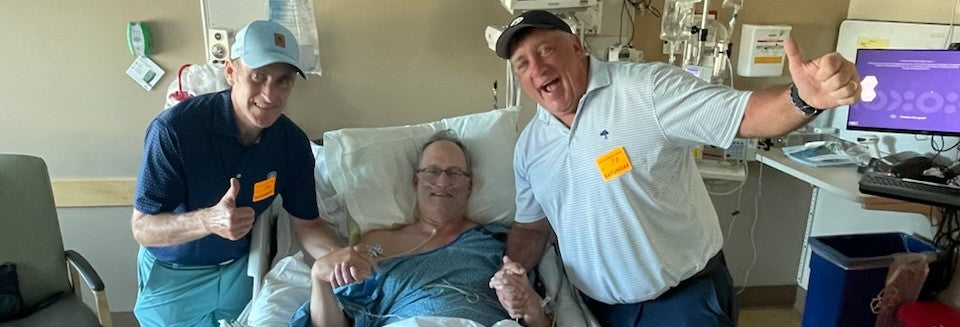
Chapter 2: Remember to Get Back Up – Resilience & Gratitude
Share
“…and you may find yourself in another part of the World”
How “You Are the World’s Best” started
You Are Fantastic!
You Are Brilliant!
You Are Gorgeous!
You Are Talented!
You Are Excellent!
You Are Resilient!
You Are the World’s Best!
The “other part of the world” I found myself in was the ICU. The first 2–3 days in the Intensive Care Unit (ICU) are a complete blank—just a stretch of time erased from my personal history. I don’t remember arriving. I don’t remember being monitored or stabilized. I don’t remember the panic, the pain, the relief, the quiet sobs or the whispered prayers. All of that was lived by others, while I lay suspended somewhere just out of reach.
When I regained consciousness in my ICU room, I awoke to fluorescent lights and the muffled beeping of machines, the sterile air thick with a kind of quiet urgency. Faces hovered above me—familiar, yet unplaceable. Voices spoke to me as if we’d just spoken yesterday, but I couldn’t recall a single word. It was as if my life had become a story, and I hadn’t been there to live it.
After my sudden cardiac arrest, the hospital became a strange kind of limbo. I had survived something I couldn’t remember happening, and in the days that followed, I found myself trapped in a loop of confusion, unable to hold onto new memories for more than a few minutes at a time. Anterograde amnesia—that’s what they called it. To me, it felt like trying to build a bridge with water, each moment slipping away before I could cross to the next.
It wasn’t until later that I began piecing together the lost days—not through memory, but through stories told to me by friends, family, and the hospital care team who stood at my side. They filled in the blanks with kindness and compassion, offering me back the missing pieces of my life. For those first few days, for them and for me, it was like stepping into a strange, sad remake of Groundhog Day. Every time someone walked into my room, I’d greet them as if it were the first time. Every conversation began anew. Every reassurance had to be given again and again.
Everything I recount in this chapter comes from them. This isn’t my memory—it’s a mosaic built from theirs. These are the moments they witnessed; the things they carried for me until I was able to carry myself again and GET BACK UP!
When I arrived at the Emergency room on Day ZERO I was intubated and provided additional lifesaving interventions by the care team at Regions Hospital in St. Paul, MN. That night I was combative and trying to get out of the hospital bed because I was “fine” and wanted to leave. I even kept trying to take out my own intubation tube. Apparently, I really did not like being intubated. Clearly, I was out of my mind, not thinking straight but fighting for life.
By the end of day zero and the morning of Day ONE, my sister Maria was there along with my sons Ashton, and Sig 3 (affectionately known by me as Sigareeno) along with his wife Becca.
Sigareeno, in the midst of his second year of medical school, suddenly found himself using everything he’d learned in real time. His father had become a living case study. He consulted with the doctors, asked the hard questions, and worked to understand the complexities of my condition and the plan for my care. His biggest concern was haunting: given how long my heart had been stopped and how long I had been without oxygen, there was a very real chance I might never come back—at least, not fully. The word "vegetative" floated heavily in the air - would my Anterograde amnesia be a permanent state of mind?...
Continued in my book scheduled for publication around Sept 1...
